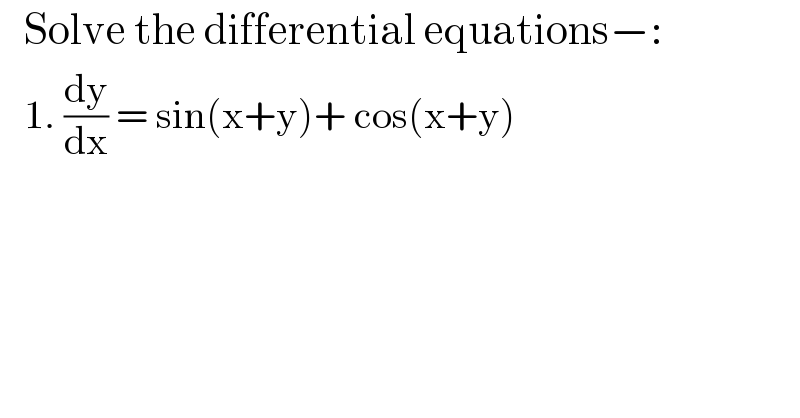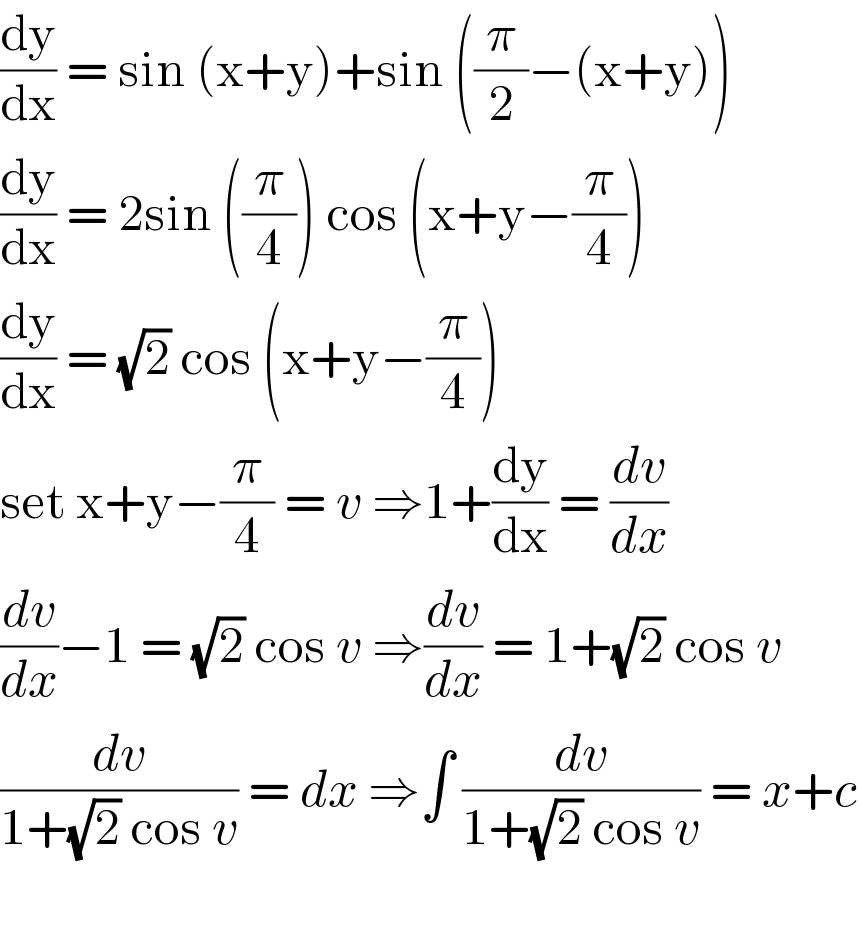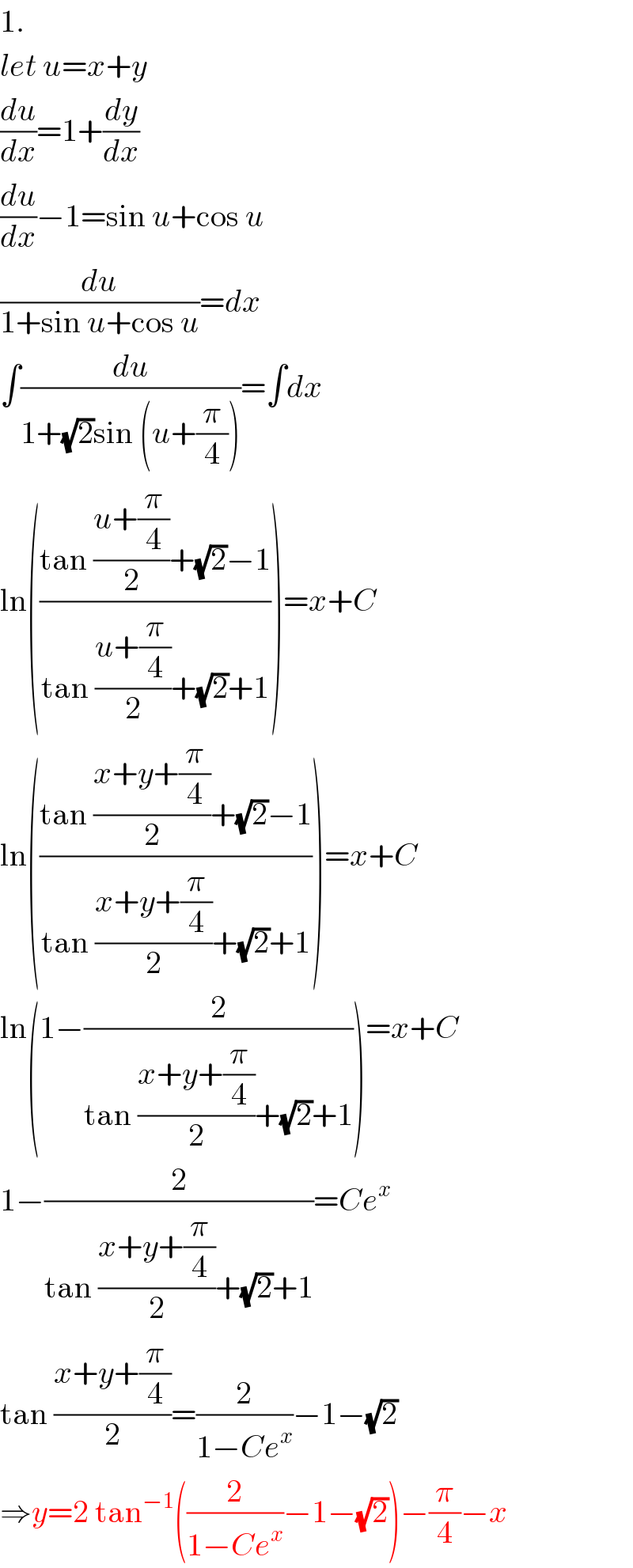
Question and Answers Forum
Previous in Differential Equation Next in Differential Equation
Question Number 95068 by Mr.D.N. last updated on 23/May/20

Commented by EmericGent last updated on 22/May/20
Would be easy with cos(x-y) instead of cos(x+y)
Commented by EmericGent last updated on 23/May/20
Do we have to use Sturm Liouville in order to solve the second? (I'm sorry I'm learning maths it's hard for me)
Commented by bobhans last updated on 23/May/20

Answered by mr W last updated on 23/May/20

Commented by peter frank last updated on 22/May/20

Commented by Mr.D.N. last updated on 23/May/20
Thank you mr.w I appreciate your grand hard work but can you present your answer in form of : log{1+ tan (x+y)/2} =x+C.
